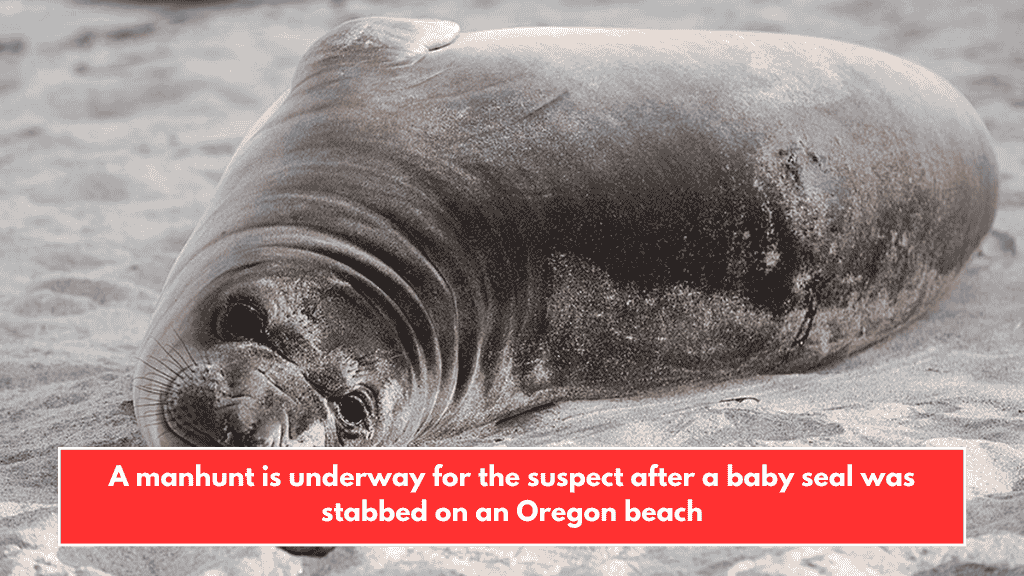Federal officials are searching for a man accused of stabbing a baby elephant seal multiple times at a beach cove in Neskowin, Oregon. Thankfully, the young seal has recovered and is doing well, but the brutal attack has shocked both locals and wildlife authorities.
The National Oceanic and Atmospheric Administration (NOAA) is now asking for help from the public in finding the attacker.
What Happened?
According to NOAA, the stabbing took place on March 16, sometime between 8 p.m. and 11:30 p.m., near a condominium complex in Neskowin, a small beach town along the Oregon coast.
The injured seal, a 300-pound elephant seal pup, was later discovered and monitored by wildlife experts. By mid-April, the animal had shown significant recovery, with no signs of lasting injuries.
A Young Seal on Its Own Journey
Michael Milstein, a public affairs officer for NOAA, told The New York Times that it’s normal for young elephant seals to spend time alone. “They often separate from their breeding groups to learn how to hunt and grow stronger before returning to places like the Channel Islands in Southern California,” he said.
Suspect Description Released
On May 6, NOAA released a sketch and detailed description of the suspect:
- Race: White male
- Height: Around 5’10”
- Hair: Black and white
- Facial hair: Groomed beard
- Teeth: Notable gap between front teeth
- Eyewear: Aviator-style glasses with thick lenses
- Clothing: Thin blue-and-green fleece top, black cap with an orange four-track excavator logo and the word “timber”
- Footwear: Dark pants with lightweight hiking shoes or boots
Suspect’s Vehicle Also Identified
Authorities are also searching for a dark blue Dodge or Chrysler van from the 1990s, spotted in a parking lot near the cove. The van reportedly had:
- A cluttered interior
- A rear side window covered in plastic
- Possibly lived-in appearance
Legal Consequences
Harming marine animals like elephant seals is a federal crime under the Marine Mammal Protection Act. This law prohibits harassing, harming, or killing marine mammals, including elephant seals.
Anyone found guilty could face:
- Fines up to $100,000
- Up to 1 year in prison
How You Can Help
If you have any information about the attack or the person involved, authorities urge you to contact NOAA’s Enforcement Hotline or submit tips through their website. All tips can be kept anonymous.
This case is a grim reminder of how human cruelty can still threaten vulnerable wildlife. While the baby elephant seal is safe and recovering, the search for justice continues. Protecting marine life isn’t just a duty for the government—it’s a shared responsibility for all of us. Anyone who witnesses such acts must speak up to ensure wildlife remains protected and respected.














